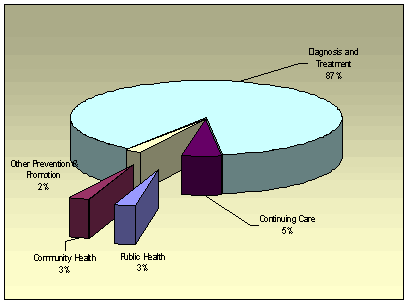Not many days go by without some media reference to problems in the “health system”. The term is in quotes because reference to health in this context is a misnomer. According to the World Health Organisation, health is a state of complete physical, mental and social well-being. There would appear to be little justification for claiming that there are major problems with “health” when the Australian Institute of Health and Welfare (AIHW) recently reported that: “…Australians enjoy good health, and that the underlying health trends are broadly in step with health improvements occurring in other developed countries”.
If Australia enjoys good health, why does the AIHW also report that throughout Australia, public and private hospital admissions continue to increase? It is amazing that there appears to be little analysis of, or debate around, this question, although theories abound. This knowledge vacuum hinders finding solutions to the problem. Meanwhile the stresses and strains are being placed on a resource-limited infrastructure. Where there is strain, tensions and conflict are likely accompaniments with scapegoats sought to blame for the situation.
May I suggest that the scapegoat should be the person who discovered that there was a return for providing remedies and treatments for afflictions? That person, born aeons ago, unknowingly began a multibillion-dollar industry that focuses on treating illness. It is an industry that has thrived well in the market economy but there is a limit to how far supply can meet demand and a limit to the cost the community is prepared to bear.
Advertisement
It is interesting to speculate on how different the situation would be today if our antediluvian entrepreneur had found that there could be profit made from selling the ingredients of health. But what are these ingredients? There has been, until recently, a lack of scientific basis to a theory of what determines health and this again is probably because, over the centuries, the illness paradigm has dominated the research agenda.
Many of the changes in thinking about health and its determinants had their roots in Canada, notably in three key documents: A New Perspective on the Health of Canadians, the Ottawa Charter on Health Promotion, and Achieving Health for All: A Framework for Health Promotion.
In 1974, A New Perspective on the Health of Canadians (The Lalonde Report), identified key factors that were considered to determine health status: lifestyle, environment, human biology and health services. This provided a comparatively simple platform from which to orchestrate strategies to promote health. With limited influence over biology, all that was required was to implement environment health policies, provide health services and encourage people to adopt a healthy lifestyle. Unfortunately this has proven to be somewhat simplistic – especially the latter. In 1986, Achieving Health for All noted that disadvantaged groups have significantly poorer health than average Canadians and that more attention needed to be paid to preventing ill health, enhancing people's capacity to cope, and creating conditions and surroundings conducive to health. In 1986, the Ottawa Charter for Health Promotion identified the prerequisites for health as “peace, shelter, education, food, income, a stable ecosystem, sustainable resources, social justice and equity”.
There was a growing recognition in Canada that living and working conditions, were critically important in influencing population health status and that the contribution of health [or illness] services to health is limited and was therefore subject to criticism. For example, Dr Manuel Carballo of the World Health Organisation said in 1987:
the health systems of most developed regions have become highly bureaucratised, over structured, regimented and unable to respond to their population’s needs; they are basically medical, curative care systems, creating dependency, unable to stimulate social autonomy or empowerment and are, in nearly all cases, becoming financially deficient ... health plans are developed in an ivory tower by elites who often do not understand the people they are working with, and in many cases do not even know them ... we must try to move towards [a health system] in which we all participate in defining needs and expectations, imposing guidance on the health care system at a political level.
It would be tempting to argue that the current demand on hospital services is a legacy of a previous lack of investment in prevention and promotion interventions - especially when the relative allocation to this field of endeavour is minimal compared with the treatment sector as shown in the Pie Chart below, which is based on figures in the recent past.
Advertisement

It might also be claimed that a greater focus on the prevention of disease in the past would have alleviated the current situation. But “disease prevention” has been defined as:
... essentially an activity in the medical field dealing with individuals of particularly defined groups at risk. It aims to conserve health. It does not represent the positive vision of health moves ahead, but is concerned with maintaining the status quo.